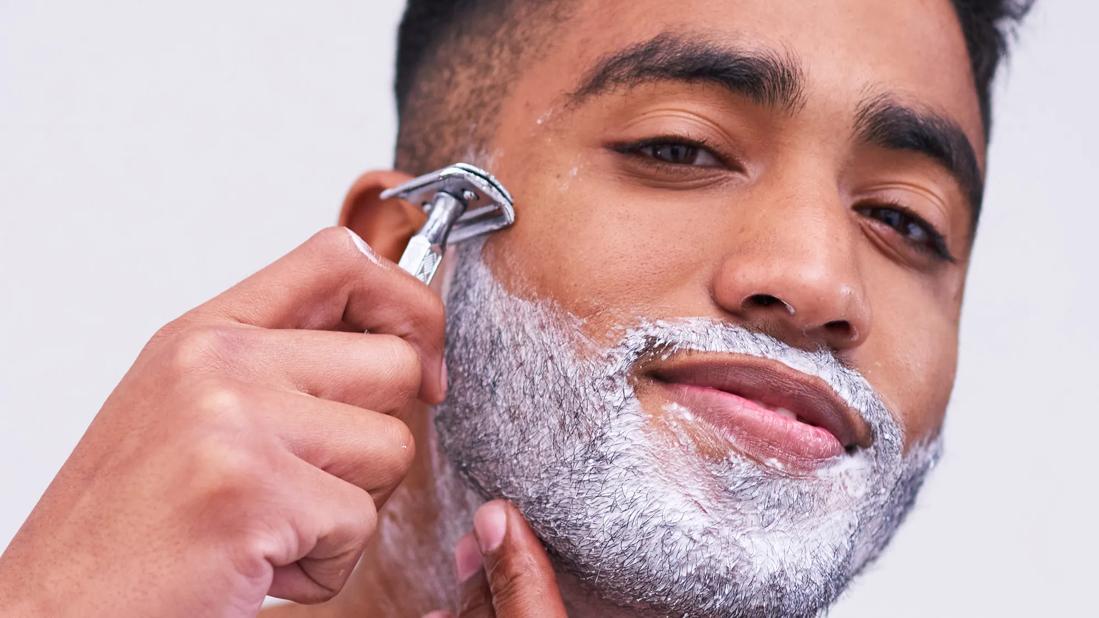Soften your skin with warm water and shaving cream before shaving with the grain of the hair

Trying to get a good shave can be hit or miss. Cuts. Bumps. Razor burn. You might wonder why you don’t always get the smooth result you see in those razor-sharp shaving commercials.
Advertisement
Cleveland Clinic is a non-profit academic medical center. Advertising on our site helps support our mission. We do not endorse non-Cleveland Clinic products or services. Policy
The problem, says dermatologist Shilpi Khetarpal, MD, might be in how you shave or the products you use before, during and after your routine.
No one wants cuts, ingrown hairs and other undesirable effects of shaving. That’s true wherever your razor roams, from your face, underarms and legs to more intimate areas of your body.
To avoid mishaps, you’ll want to perfect your shaving process. Next time you pick up a razor, try this approach.
The key to a smooth shave starts with how you prep your skin. A lot of people wonder: Should you exfoliate before or after shaving?
Exfoliating beforehand actually helps remove some of your dead skin cells and helps prevent ingrown hairs — but that’s just one step you can take to get a smooth shave. Here’s how to prepare:
Follow these steps once you’ve prepped your skin:
Advertisement
When you’re done shaving:
You know you should get a new razor if you:
“Razor blades tend to last for up to five to 10 shaves, and some may last a month or longer, depending on how often you use them,” reports Dr. Khetarpal.
Dr. Khetarpal also notes that shaving your skin makes it more sensitive to the sun, so you’ll want to put on sunscreen whenever your shaving routine is complete.
“Ideally, you would wait 24 hours before exposing freshly shaved skin to extended periods in the sun,” recommends Dr. Khetarpal. “When you do venture out to enjoy the warmer weather, use a broad-spectrum sunscreen with SPF of at least 30 and reapply after swimming in water or after sweating.”
Advertisement

Sign up for our Health Essentials emails for expert guidance on nutrition, fitness, sleep, skin care and more.
Learn more about our editorial process.
Advertisement

Rosemary oil’s antioxidant, anti-inflammatory and antimicrobial properties could help stimulate hair growth

Scalp cancers can occur because of long-term sun exposure

Age is the most likely reason for typical graying, but premature graying may be caused by stress, diet, smoking or autoimmune disease

Focus on nutrition, gentle styling habits and adapting to your hair type

How often you lather up your locks can depend on various factors, like hair type, age and ethnicity

Eating whole grains, salmon, fruits and vegetables can help you achieve longer, healthier locks

Your genes, ethnicity, diet and stress levels may all affect your facial hair

Your hair removal routine will depend on your pain tolerance, budget and skin sensitivities

Even small moments of time outdoors can help reduce stress, boost mood and restore a sense of calm

A correct prescription helps your eyes see clearly — but as natural changes occur, you may need stronger or different eyeglasses

Both are medical emergencies, but they are very distinct events with different causes